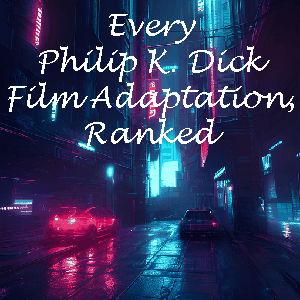For RFMC’s 3,000th post, I figured we should do something special, so let’s combine two of my favorite things: Philip K. Dick and movies. So far, 12 films directly adapt a PKD novel or story. We’ll likely get more in the future, but we’re in an odd lull, with the most recent being 2014’s “Radio Free Albemuth.”
Granted, there have been TV shows (like “Electric Dreams,” which provides 10 mini-movies) and spinoffs (like the popular “Blade Runner 2049”) since then. This list, though, looks only at the feature-length films directly drawn from the source. Rankings are from weakest to strongest. Click on each title for a full review.
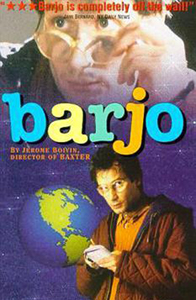
12. “Barjo” (1992)
Adapted from the novel “Confessions of a Crap Artist” (written in 1959, published in 1975)
PKD’s nine midcentury California novels for some bizarre reason meshed well with French sensibilities of a few decades later, when the novels started to be published. So it’s appropriate that the only adaptation of a non-SF Dick novel is a French film.
Although director/co-writer Jerome Boivin’s film has the same characters and most of the same scenes, it’s not the same in tone. It’s like seeing Dick’s story filtered through a kaleidoscope. Main character Barjo (Isodore in the book) shifts from internally weird to outwardly wacky, with Hippolyte Girardot having a Martin Short quality. What’s deeply tragic becomes mildly melancholy; sharp edges become blunted. Still, the fact that there’s a film adaptation of “Confessions of a Crap Artist” is pretty neat.
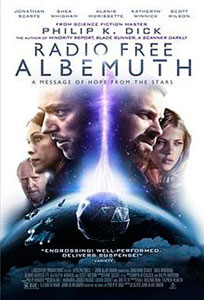
11. “Radio Free Albemuth” (2014)
Adapted from the novel of the same name (written in 1976, published in 1985)
I can’t be too hard on this micro-budget passion project of writer-director John Allan Simon, since we aren’t going to get a big-budget mainstream adaptation of this book that Dick did not intend to publish (It’s the rejected first draft of what became “VALIS”). Luckily, he gave the manuscript to a friend, and it was published posthumously; I’m one of those oddballs who thinks it is better than the official “VALIS” trilogy.
The film has distracting oddities, including everyone pronouncing VALIS with a hard “A” and the fact that Shea Whigham’s character is loosely based on Dick but with changes to the real-world chronology. The film is for some reason set in 1985 without feeling like 1985, but not in an interesting “out of time” way. Music plays a big part in the novel, and this is one area where the film steps up, with Robyn Hitchcock and Alanis Morissette performing original works.
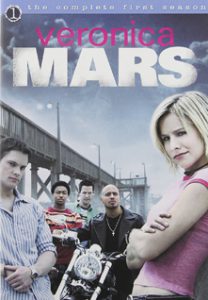

10. “Next” (2007)
Adapted from the short story “The Golden Man” (1953; in “The Collected Stories, Vol. 3”)
Despite a nice pedigree — “The Edge” director Lee Tamahori, “Total Recall” 1990 co-writer Gary Goldman and star Nicolas Cage – “Next” is content to be a rote actioner (except when it’s convoluted). Big ideas about possible futures swirl around the margins, yet the end product could have PKD’s credit removed and no one would know it comes from “The Golden Man.”
The only commonality is main character Cris’ power of being able to see 2 minutes into the future; here, he’s a good-hearted magician, in PKD’s story he’s an immoral supervillain. Granted, the fact that the military (led by Julianne Moore) wants to use Cris as a weapon is Dickian. Cris’s love story with Jessica Biel adds generic heart (and also that convoluted element, wherein he can see further into the future when she’s around). The ending makes no logical sense, and is also abrupt. But we get Cage being Cage, so that keeps “Next” from the bottom spot.
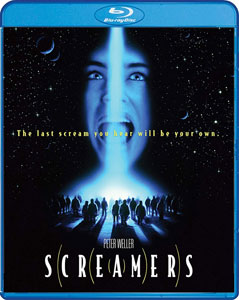
9. “Screamers” (1995)
Adapted from the short story “Second Variety” (1953; in “The Collected Stories, Vol. 2”)
Because it’s the capper of the 20th century thematic trilogy of English-language PKD adaptations, “Screamers” hits a soft spot for some sci-fi fans. I’m harder on it because it is so clearly inferior – in production values and acting (although Peter Weller is a fine lead) – to “Blade Runner” and “Total Recall.” While it took forever to hit the big screen after Dan O’Bannon wrote the script in 1981, once production did start, it was apparently cranked out fast by director Christian Duguay.
Folks who don’t know PKD wrote the source material about a tentative truce on a war-torn space outpost might think this is a “Terminator” ripoff, with primitive (but still deadly) burrowing “claws” attacking the soldiers. Because of a core bit of illogic – identical-looking “human” robots can fool the soldiers only once before the ruse collapses – I don’t rate Dick’s short story as highly as most do, and the same holds for the film.
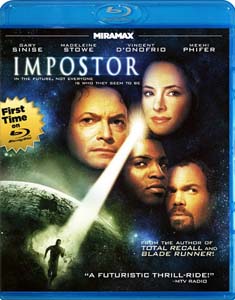
8. “Impostor” (2002)
Adapted from the short story of the same name (1953; in “The Collected Stories, Vol. 2”)
“Impostor” is fully engaged with the source material, particularly the question of whether main character Spencer (Gary Sinise) is a human or a replicant planted by the enemy Centauri. Spencer himself does not know. Director Gary Fleder’s film is therefore about what extremely casual observers think “Blade Runner” is about: whether Deckard is or isn’t human.
Because of the compelling mystery, the cheapness of some set designs and special effects isn’t distracting. And screenwriters Scott Rosenberg and Caroline Case give us a climactic twist that’s thematically consistent with Dick. Unfortunately, the film pads out scenes and adds action sequences, so at 95 minutes it’s a bit of an imposter. If it stuck with its originally conceived 40-minute version, it’d rank higher on this list (except for the fact that it would be a short film and not eligible, but you know what I mean).

7. “Paycheck” (2003)
Adapted from the short story of the same name (1952; in “The Collected Stories, Vol. 1”)
In several instances, a director uses a PKD story as a foundation, but really they’re interested in using their own style, not the author’s. Such is the case with John Woo, as he makes an actioner starring Ben Affleck as Jennings, who (although better looking than the author likely intended) retains that PKD element of someone confused as hell about his predicament.
Jennings (before he was mind-wiped) sent a package of items to his future self, in order to carry out a vision of the future. The events have an air of fatalism not all that different from the real world in the wake of 9/11. On the downside, writer Dean Georgaris’ material about seeing into the future is techie mumbo-jumbo and brain-straining philosophizing. While the white-dove-obsessed Woo has fallen out of favor, it’s not totally wrong that he was once a revered action director, so “Paycheck” lands in the middle of the pack among PKD adaptations.
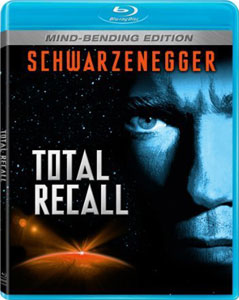
6. “Total Recall” (1990)
Adapted from the short story “We Can Remember It For You Wholesale” (1966; in “The Collected Stories, Vol. 5”)
Writer-director Paul Verhoeven makes films that draw widely varying responses. I think his brand of violent SF satire plays wonderfully in “Starship Troopers,” but “Total Recall” – while certainly a wild ride driven by a game Arnold Schwarzenegger – is more absurd than satirical. The mustache-twirling villainy of the Mars colony boss (Ronny Cox), for one, doesn’t fit with PKD’s portrayals of shallow and practical corporatism. While the cardboard-looking sets and ill-disguised matte paintings might have shlock appeal, they’re disappointing coming on the heels of the previous adaptation, “Blade Runner.”
I have to lodge those complaints to justify my middle-of-the-pack ranking for this film penned by “Alien” legends O’Bannon and Ronald Shusett. But certainly Quaid’s insane-yet-comprehensible “Who am I?” arc translates well to film, and it’s fun to see Arnold go through those beats while unleashing corny one-liners.
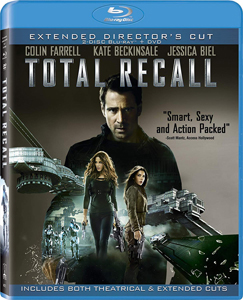
5. “Total Recall” (2012)
Adapted from the short story “We Can Remember It For You Wholesale” (1966; in “The Collected Stories, Vol. 5”)
It’ll be considered blasphemy to rank this remake higher than the original, but I adore this production-design feast from Patrick Tatopoulos (“Dark City,” “I, Robot”). While “Blade Runner” presents a gorgeous multi-level city via matte paintings, director Len Wiseman’s film lets us explore a smorgasbord of canals, dirty streets and futuristic transport cubes that move vertically and horizontally.
The screenplay by Kurt Wimmer and Mark Bomback doesn’t change thematically from the original, although the conflict is confined to Earth. Colin Farrell plays more of a traditional PKD Sad Sack than Arnold, and Biel washes away the sour taste of “Next.” “Total Recall” didn’t need to be remade, but the filmmakers deliver something more substantial than a name-recognition cash-grab.
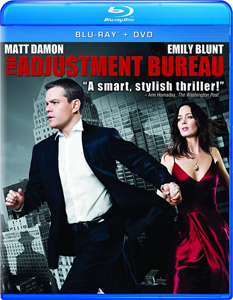
4. “The Adjustment Bureau” (2011)
Adapted from the short story “The Adjustment Team” (1954; collected in “The Collected Stories, Vol. 2”)
PKD meets an MPDG in writer-director George Nolfi’s film that builds on the short story rather than minimizing or simplifying it – as some of the lower-rated films on this list do. Emily Blunt’s Elise starts out as a Manic Pixie Dream Girl who has not one but two meet-cutes with Matt Damon, as a good-guy politician David. They have good romantic chemistry, so although the notion that the fate of this reality rests on their love story is silly, it’s also worth a smile.
“Adjustment Bureau” gains traditionally Dickian layers of intrigue when we get into mind-wipe threats and the couples’ “Matrix”-esque movement through alternate dimensions. Too mainstream for some viewers, too weird for others, “Adjustment Bureau” doesn’t quite reach SF classic status. But it is thoroughly likable thanks to the leads.
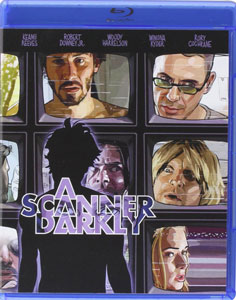
3. “A Scanner Darkly” (2006)
Adapted from the novel of the same name (1977)
Writer-director Richard Linklater’s love for the novel shows through in this faithful adaptation. It’s flatter than the book, lacking its (perhaps untranslatable) dark humor. But on the other hand, Linklater gives a meatier role to Donna (Winona Ryder) and a hopeful ending for tragic protagonist Bob Arctor (Keanu Reeves). It’s shot in rotoscope style, which is ideal for the Scramble Suit scenes, and it fits with the general drug-trippiness.
Although I might’ve preferred a live-action adaptation (with only the Scramble Suit requiring a special effect), it’s pretty cool to get a PKD adaptation with Ryder, Reeves, Robert Downey Jr. and Woody Harrelson. “A Scanner Darkly” is my favorite PKD novel, but one that’s hard to adapt to film, since Arctor’s struggles are so internal and bizarre. Linklater comes impressively close to doing this masterpiece justice.
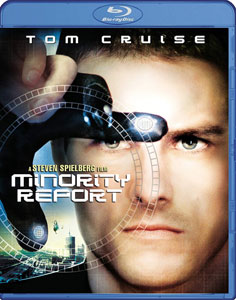
2. “Minority Report” (2002)
Adapted from the short story of the same name (1954; collected in “The Collected Stories, Vol. 4”)
Director Steven Spielberg and star Tom Cruise team up for a sci-fi actioner in that gray Aughts style that will be more appreciated as time goes by. But what makes “Minority Report” a great PKD adaptation is that writers Scott Frank and John Cohen dig deeply into the author’s themes. They ask us to weigh the fact that crime has decreased under Pre-Crime with the fact that the program violates individual rights – locking people up for things they “would have done.” Both I and the film come down on the side of the individual, so I like it for that reason.
There’s also Dickian world-building; for example, a virtual-reality lounge that raises questions about mental health. Yes, it’s good to receive compliments, but it’s not quite the same if you’re paying to receive compliments. Unlike the stylish “Blade Runner” and the shlocky “Total Recall” 1990, “Minority Report” shows the near-future in the way it’s most likely to be. A little bit dystopian, a little bit technologically amazing.
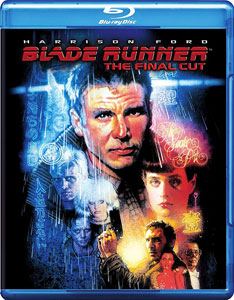
1. “Blade Runner” (1982)
Adapted from the novel “Do Androids Dream of Electric Sheep?” (1968)
Granted, the differences between Dick’s vision and that of director Ridley Scott (via David Webb Peoples’ and Hampton Fancher’s screenplay and Sid Mead’s production design and Vangelis’ score) are fun to parse. But the first PKD adaptation remains the truest adaptation because it retains the core theme of the nature of humanity, even though Dick was anti-android and “Blade Runner” has sympathy for androids.
While “BR” is most influential for its luscious design, it’s a powerful story, too. Even though Harrison Ford was an action hero by this time, and Deckard carries a gun and drives a cool spinner, this is actually a hardboiled yet emotional detective thriller. The death-scene monolog by Roy Batty (Rutger Hauer) is among the most poetic in cinema history.
PKD makes us laugh as we think, and Scott makes us drift into a rainy neon night as we ponder life’s cruelties and beauties, but the works are more complementary than contradictory. In a parting gift to symmetry, PKD (who died shortly before the film’s release) said the movie’s L.A. cityscape was what he envisioned when writing the novel. Memories are lost like tears in rain, but “Blade Runner” lingers and keeps drawing us back.
Click here to visit our Philip K. Dick Zone.
Main image by DeeDee51 via Pixabay.

